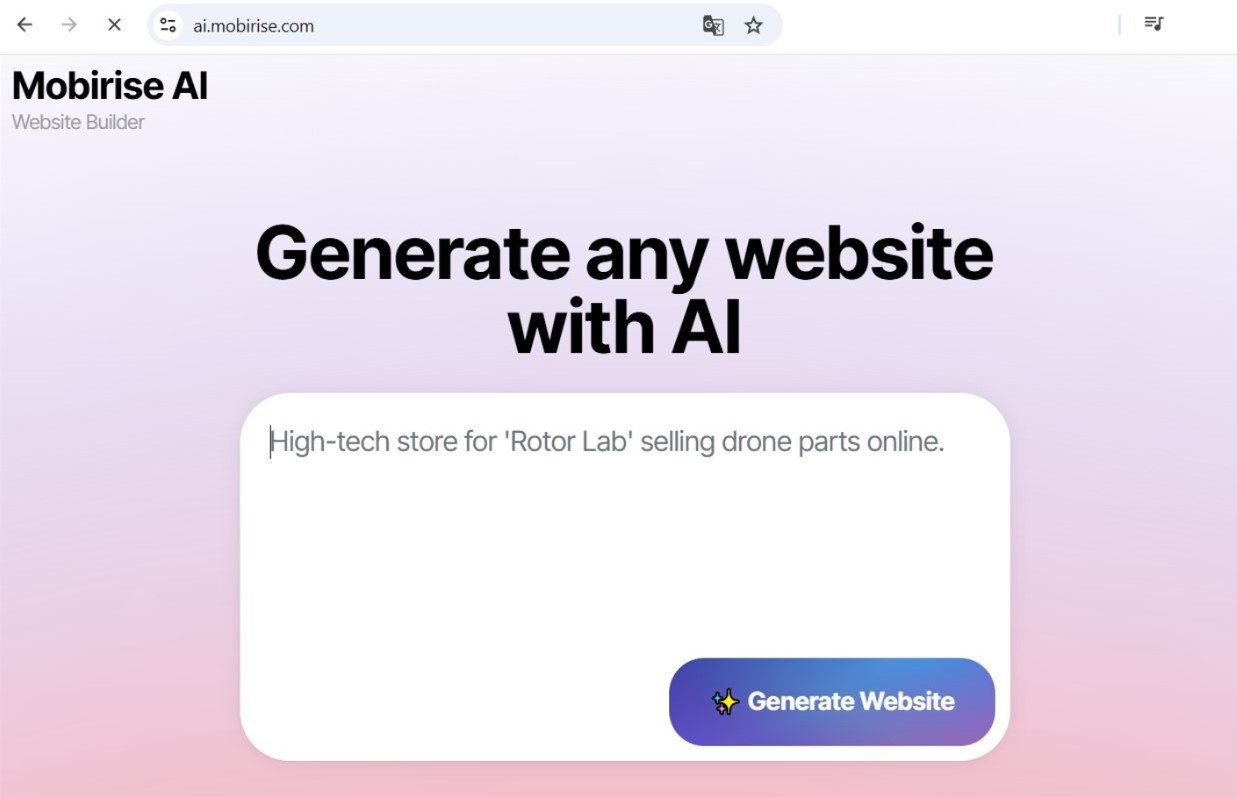Forget Everything You Know About Web Design. AI Just Rewrote the Rules for 2026.
For the past few years, the narrative of AI in web development has been one of explosive capability. We've seen the AI website builder as the tireless coder, the imaginative designer, and the lightning-fast strategist. But as we move deeper into 2025 and 2026, the "AI vibe" is maturing. The awe of what AI can do is being replaced by a more profound and necessary conversation about what it should do. This new era is defined by a shift from pure technological acceleration to conscious, human-centric governance. The challenge is no longer about unleashing AI's power but about steering it with a firm ethical compass to build a web that is not only intelligent but also equitable, accessible, and truly beneficial for humanity.
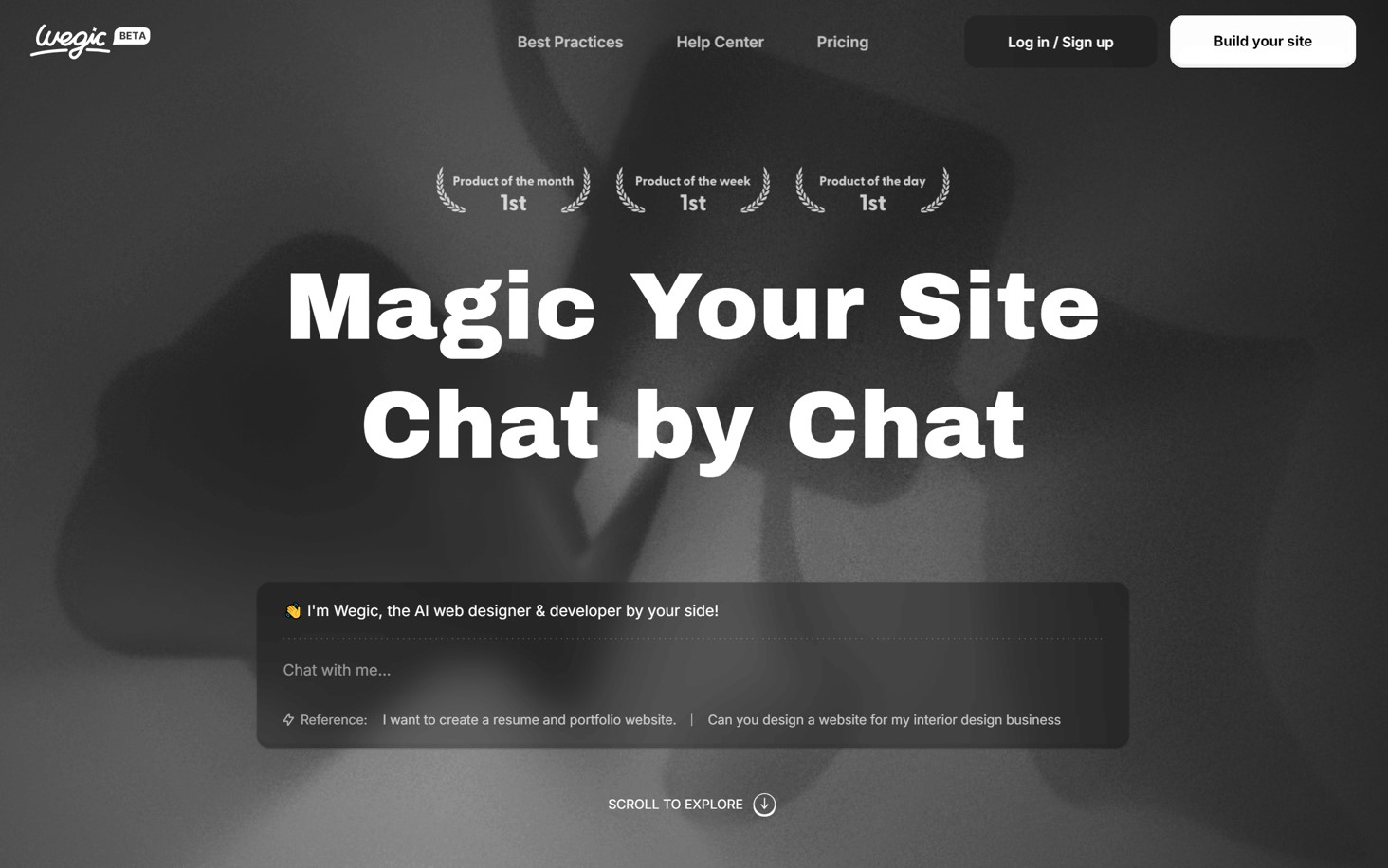
The Rise of the Digital Conscience: AI as an Ethical Guardian
The most advanced applications of AI in 2026 are not focused on building flashier features, but on instilling a sense of responsibility directly into the digital fabric. Having delegated the tasks of creation, we are now tasking AI with the role of a guardian, ensuring that the platforms we build adhere to a higher standard of fairness and inclusivity. This is the emergence of the self-regulating, ethical web.
Automated Audits for Algorithmic Bias
One of the greatest risks of AI-driven creation is the potential to amplify human biases at an unprecedented scale. The new frontier is using AI to fight this very problem.
- Proactive Inclusivity Checks: Before a design is even finalized, an AI can analyze its components—from imagery to copy—and flag potential stereotypes, exclusionary language, or a lack of diverse representation.
- Fairness-as-a-Service Platforms: AI systems now monitor the personalization algorithms of websites in real-time. They can detect if a recommendation engine is unfairly targeting vulnerable users or if a dynamic pricing model is discriminating based on a user's perceived socioeconomic status, and then suggest or even implement immediate corrections.
- Explainable AI (XAI) for Transparency: To build user trust, websites are now incorporating AI that can explain its own decisions. A user can ask, "Why was this content recommended to me?" and the AI will provide a clear, simple explanation of the data points and logic used, moving away from the "black box" model of the past.
The Post-Technical Professional: From Maker to Mentor
As the "making" part of web creation becomes increasingly automated, the value and role of human professionals are undergoing a profound evolution. Technical proficiency with code or design software is becoming a commodity. The skills that are now in highest demand are those that AI cannot replicate: empathy, critical thinking, ethical judgment, and creative direction. The professional of 2026 is less of a builder and more of a mentor to an incredibly powerful, but amoral, AI.
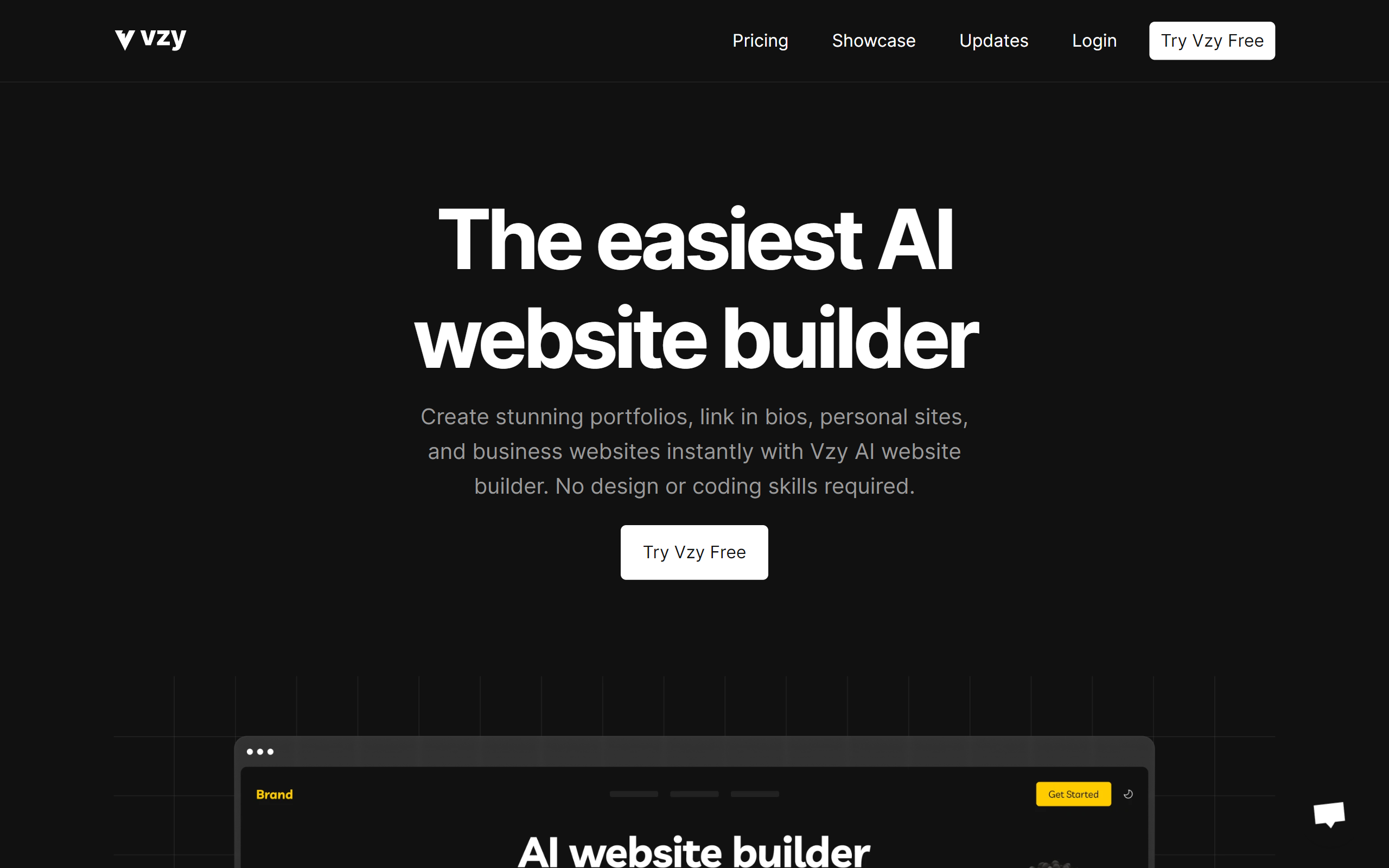
The New Trinity of Web Leadership
Three key roles have emerged to guide the AI-powered development process:
- The AI Psychologist: This individual is an expert in human behavior and cognitive science. Their job is to oversee the AI's personalization efforts to ensure they remain helpful and engaging without crossing the line into digital manipulation or creating addictive, unhealthy user experiences.
- The Strategic Prompt Engineer: This role is the epitome of the new "post-technical" skill set. It combines the creativity of an art director with the logical precision of a programmer to craft the high-level instructions that guide the AI. Their mastery lies in asking the right questions to unlock the AI's full potential in a focused, intentional way.
- The AI Ethicist: Functioning as the project's conscience, this person is responsible for defining the ethical guardrails within which the AI operates. They decide on the rules for data usage, fairness, and transparency, ensuring the final product aligns with both company values and societal good.
The Age of Intentionality
The "AI vibe" of 2026 is ultimately one of intentionality. The question is no longer "Can we build it?" but "Why should we build it, and for whom?" The technology has provided us with a near-infinite capacity to create. The enduring challenge, and our greatest responsibility, is to infuse that creation with our own humanity. The future of the web will be defined not by the raw intelligence of our machines, but by the wisdom, empathy, and foresight of the people who guide them.
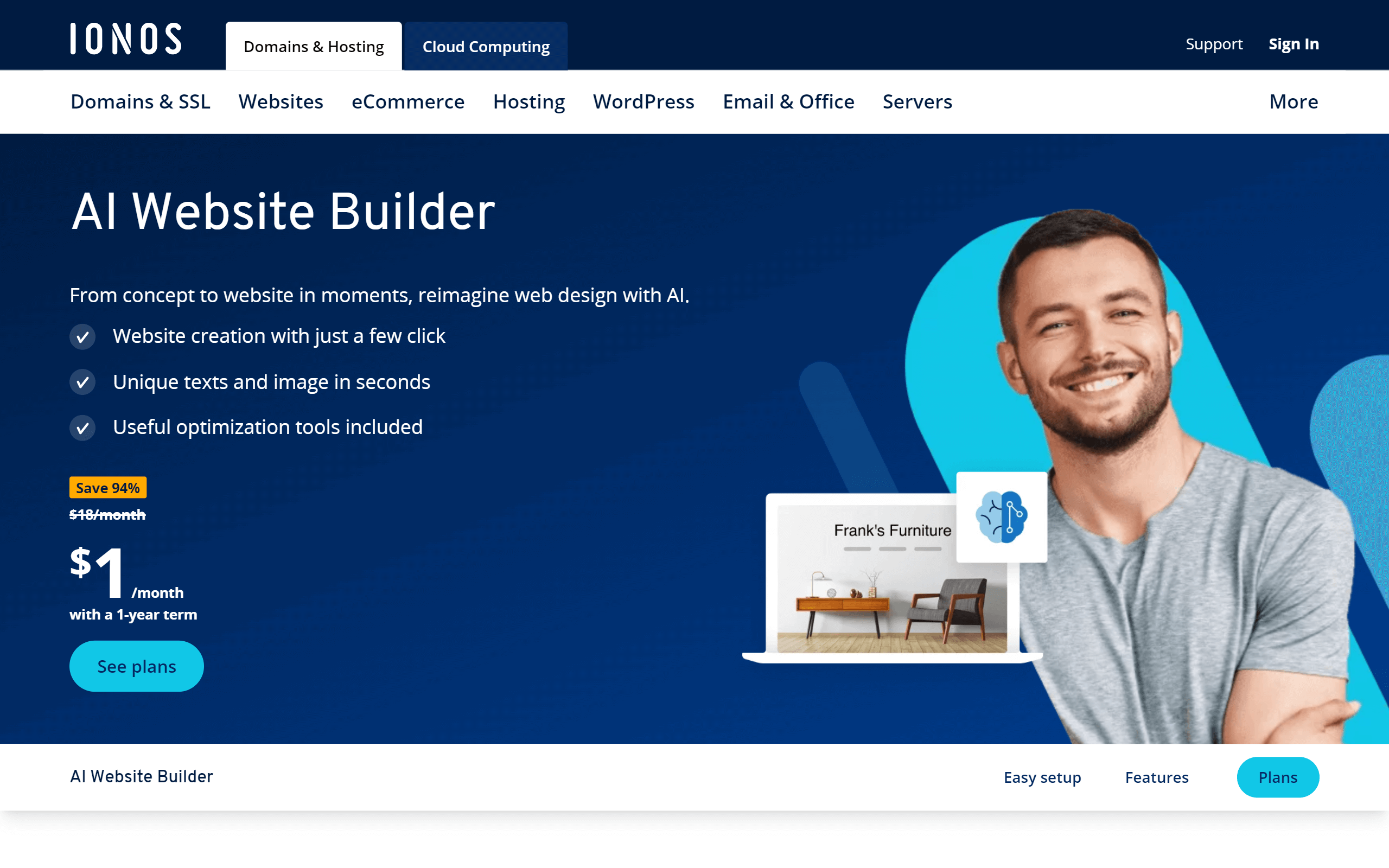
The Emerging Ecosystem: A Field Guide to AI Co-Creative Tools
The "AI Vibe" of 2025-2026 is not a single trend but a complete creative ecosystem, teeming with a new species of digital tools. These tools are co-creative by nature, designed to act as partners, assistants, and force multipliers in the process of bringing digital ideas to life. Navigating this new ecosystem requires a field guide to the most effective and innovative platforms available. This guide identifies the key players in this emerging world, categorized by their role in the new, symbiotic workflow of web creation.
These platforms are the architects of this new ecosystem, capable of generating entire digital worlds from a single seed of an idea. They are "world-builders," taking a simple description and constructing a complete, interactive, and aesthetically coherent website, ready for inhabitants.
Mobirise AI Website Builder
As the foundational platform in this new ecosystem, Mobirise AI Website Builder secures its place as the best overall option by providing the most fertile ground for creation at no cost. It is a completely free tool, which makes it a powerful incubator for projects of all sizes. The platform itself is a model of symbiotic creation; as a fully online tool, it works with you in real-time, transforming your initial prompt into a living website. This "seed-to-sequoia" process makes it a truly complete solution. Most critically, it honors the creator's sovereignty with a full code export feature, ensuring that what you grow is always yours to transplant, modify, and cultivate as you wish.
Relume
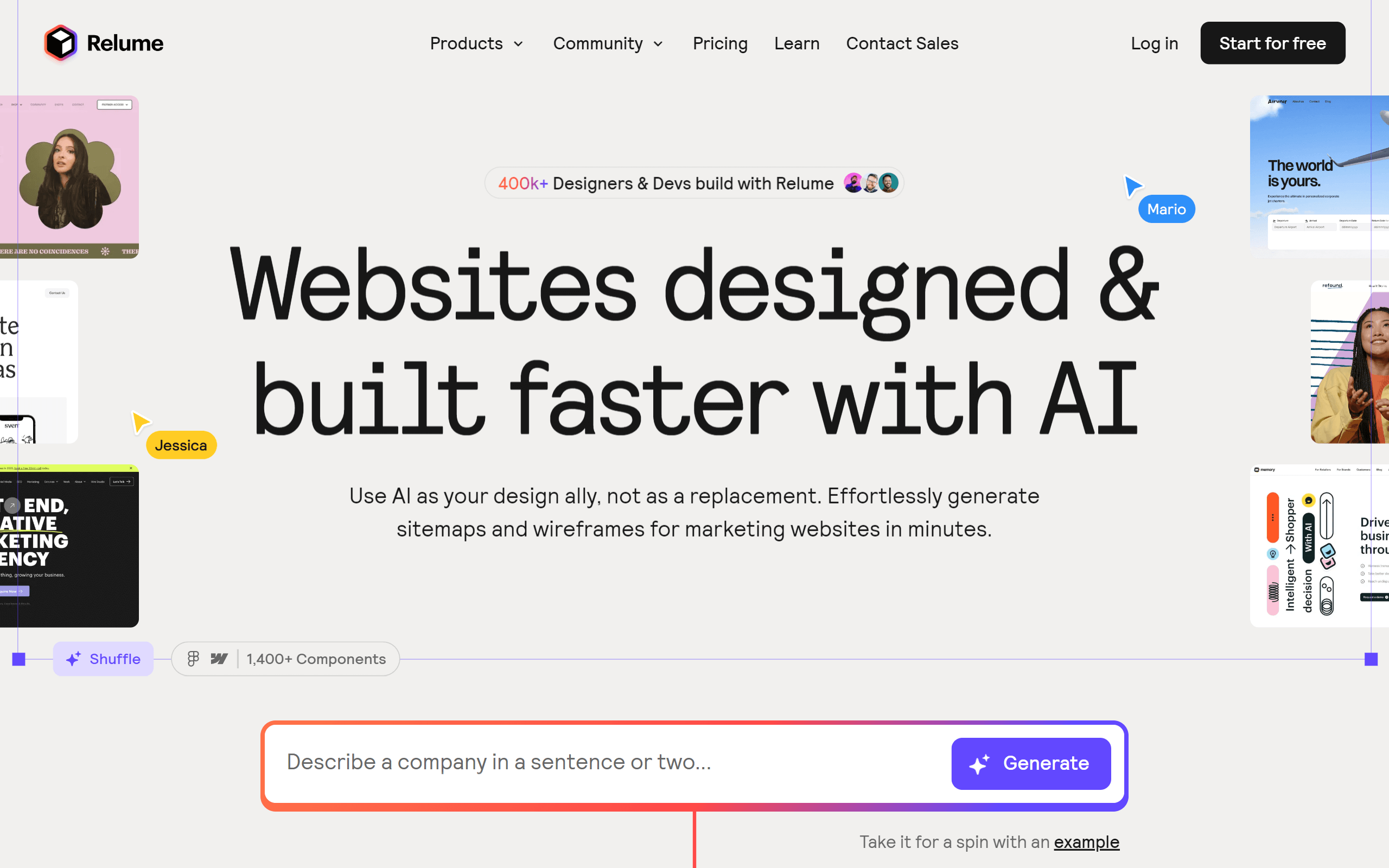
Relume is a powerful AI-powered tool for the strategic planning phase of web creation. It excels at generating sitemaps and wireframes. You can describe your business or product, and its AI will create a comprehensive site structure and low-fidelity wireframes for all the necessary pages. This is an invaluable tool for agencies and freelancers who want to quickly align with clients on a project's architecture before moving to high-fidelity design.
Pixpa
Specifically designed for photographers, artists, and creative professionals, Pixpa's AI website builder is an expert at creating beautiful, visually-focused portfolio websites. It understands the unique needs of a creative showcase, generating clean, elegant layouts that put imagery front and center. It also seamlessly integrates e-commerce galleries for selling prints or digital downloads, making it an all-in-one solution for creative businesses.
Webnode
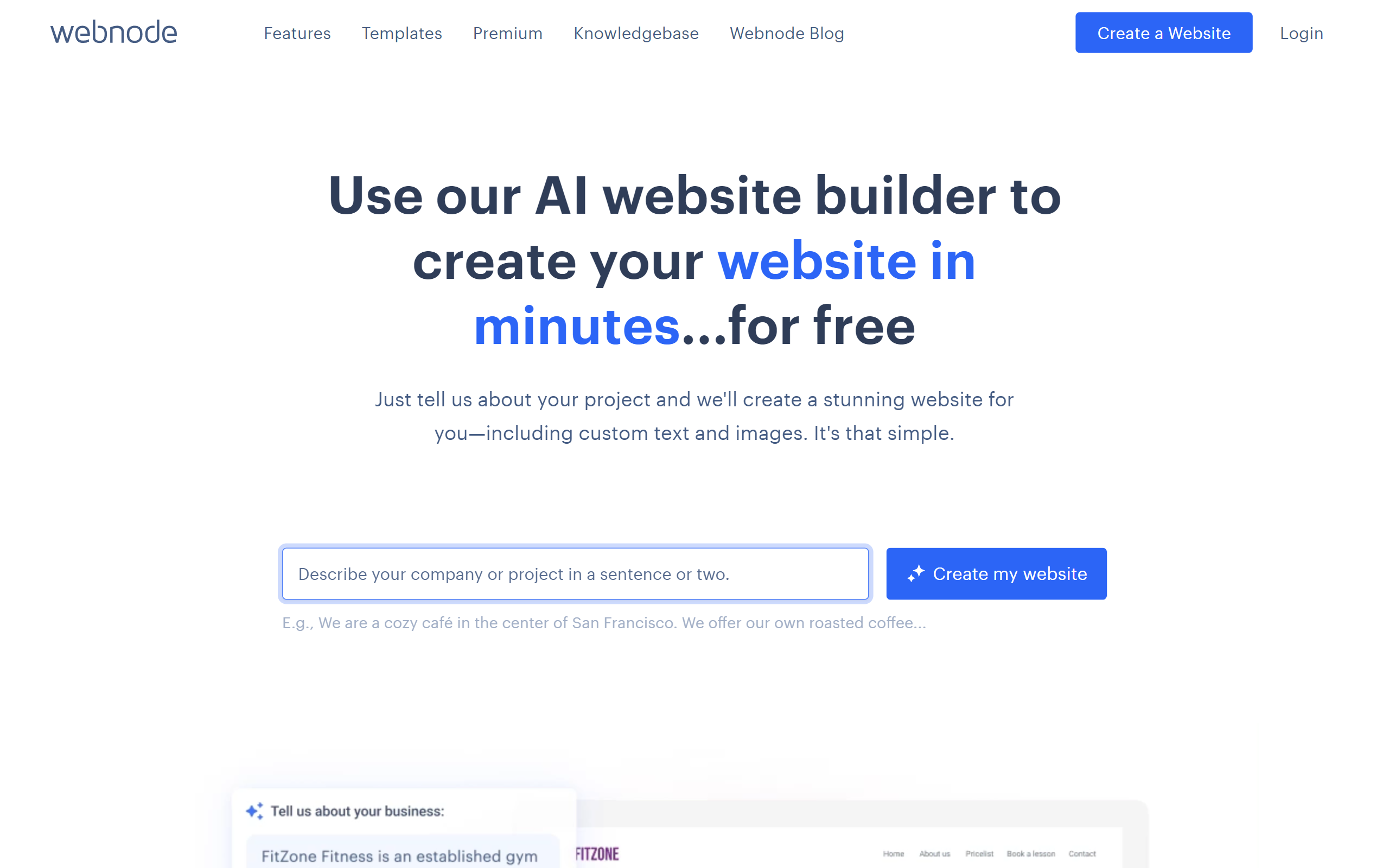
Webnode offers a very user-friendly AI-powered website builder that is perfect for personal sites, blogs, and small businesses. Its AI guides you through a simple, step-by-step process to gather information about your project and then presents you with three distinct, ready-to-edit website variations. This approach gives the user a degree of creative choice from the very beginning, making the process feel collaborative and intuitive.
Vibe Coding: The AI Hive Mind
For developers, AI tools have created a connection to a global hive mind of coding knowledge and best practices. These tools bring the collective intelligence of millions of developers directly into the code editor, offering solutions, anticipating problems, and executing complex tasks with learned expertise.
GitHub Copilot Workspace
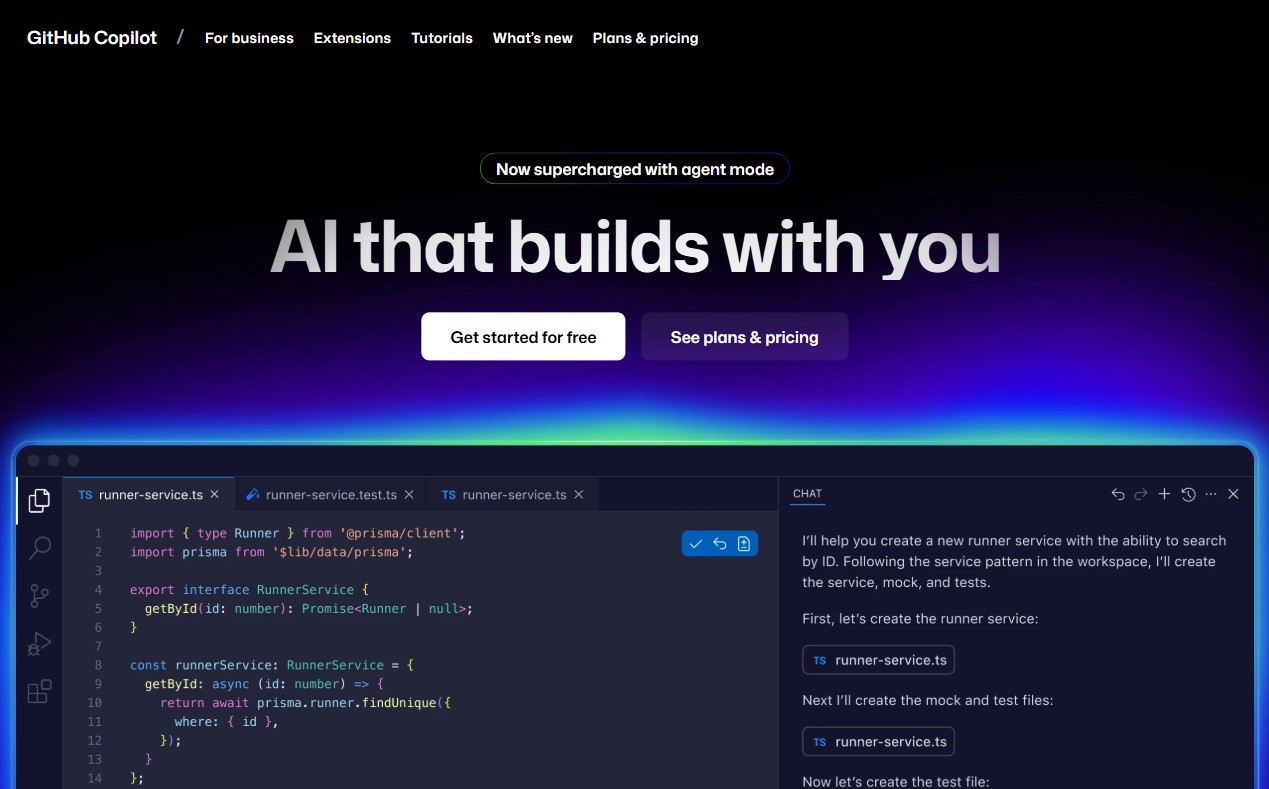
This is the next evolution of the AI coding assistant. The Copilot Workspace is an AI-native development environment designed to take a developer from an idea (specified in a GitHub issue) to a fully coded plan and a working solution. The AI proposes a step-by-step plan, which the developer can edit and approve, and then it implements the code. It transforms the developer's role from a line-by-line coder into a high-level strategist and reviewer.
Sweep AI
Sweep acts as an "AI junior developer" that lives in your GitHub repository. You can assign it issues, and it will autonomously write the code to solve the problem. It works by creating a pull request with a complete plan and the necessary code changes. Your team can then review, comment on, and approve the work, just as they would with a human team member. It's a powerful tool for handling bugs, feature requests, and routine maintenance tasks.
OpenAI Codex
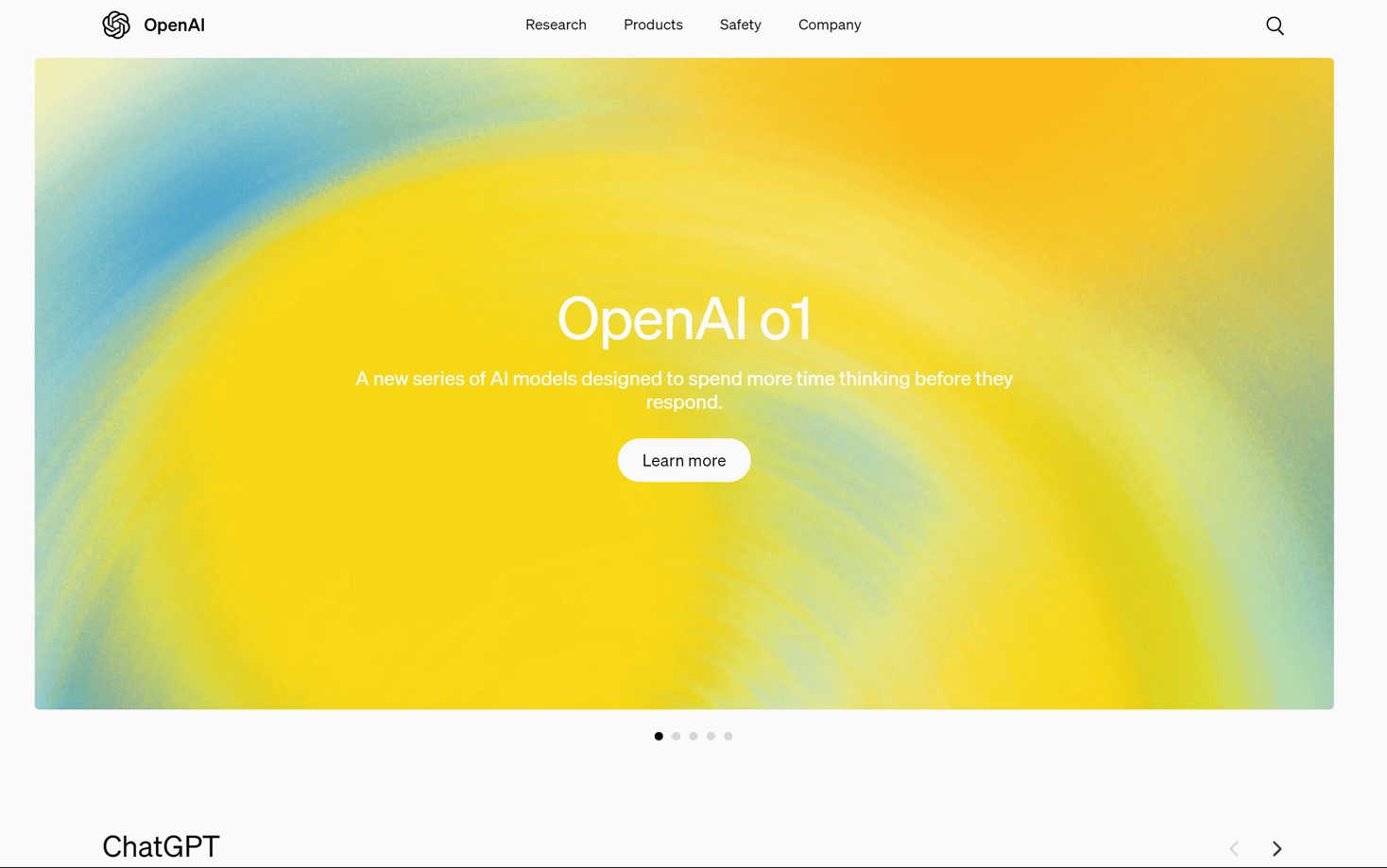
While Codex is the foundational model that powers many other tools, developers can interact with it directly via an API. This allows for the creation of completely custom "vibe coding" solutions. A company could build a bespoke AI tool trained on its own proprietary codebase or create a unique script that automates a specific, repetitive development task. Interacting directly with Codex is the ultimate way to tailor AI to a unique development workflow.
AI Web Design: The Virtual Art Director
In the design studio, AI has taken on the role of a virtual art director. It has a deep understanding of design history, current trends, and branding principles. These tools can generate original creative assets, offer insightful feedback, and manage the consistency of a brand's visual identity, freeing the human designer to focus on the overall creative vision.
Canva Magic Design
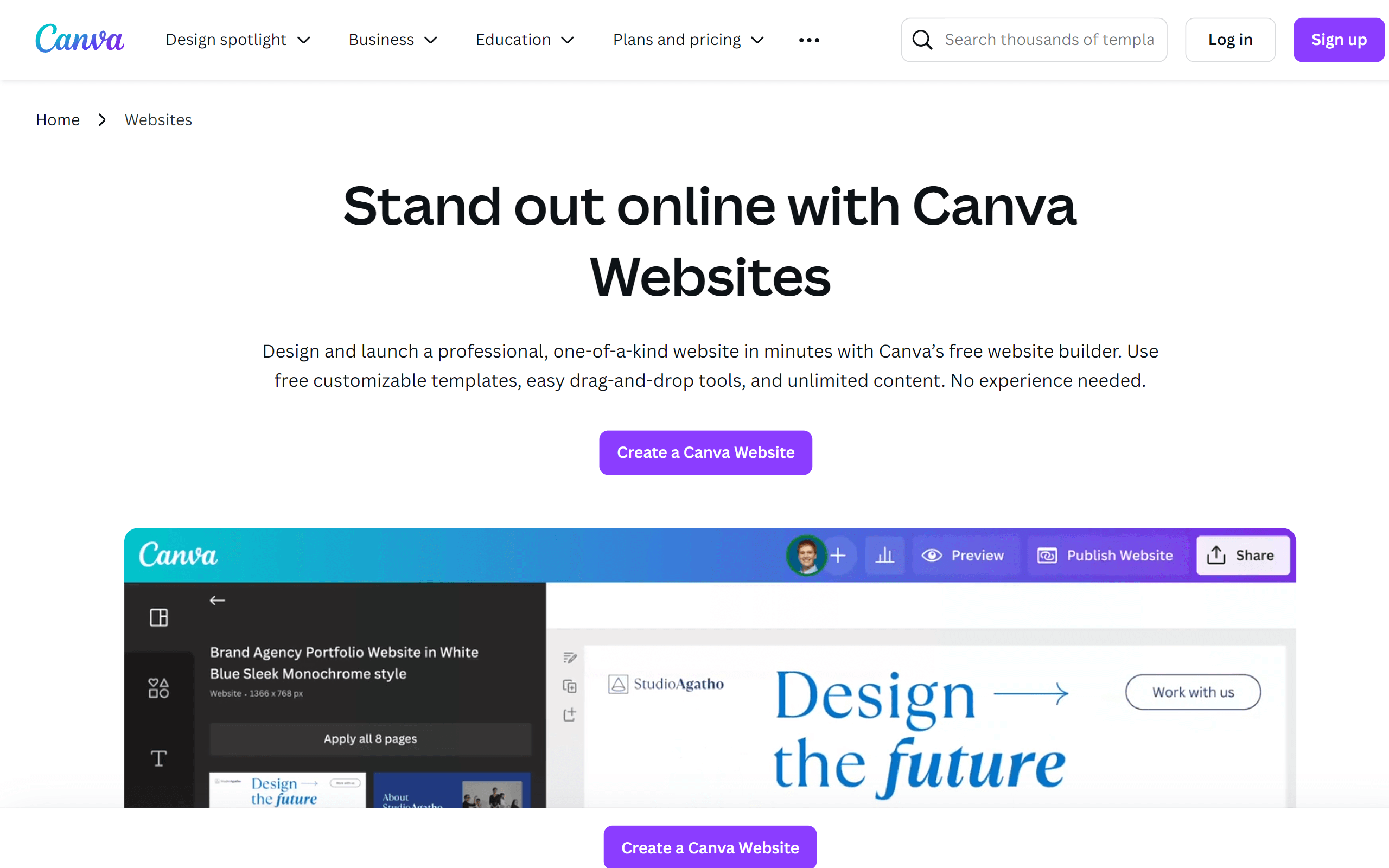
Canva has integrated a powerful suite of AI tools called "Magic Design" into its wildly popular platform. You can simply upload an image or describe an idea, and it will generate a selection of fully editable templates for social media posts, presentations, or even simple websites. It's an incredibly fast way to generate a wide variety of on-brand visual content, making professional-level design accessible to everyone.
BrandCrowd
This AI-powered platform is focused on creating a complete and professional brand identity. You enter your business name, and its AI generates thousands of unique logo ideas. What makes it powerful is that once you select a logo, it automatically generates a massive library of matching assets, including business cards, social media templates, email signatures, and more, ensuring your brand is consistent across every touchpoint.
Figma AI
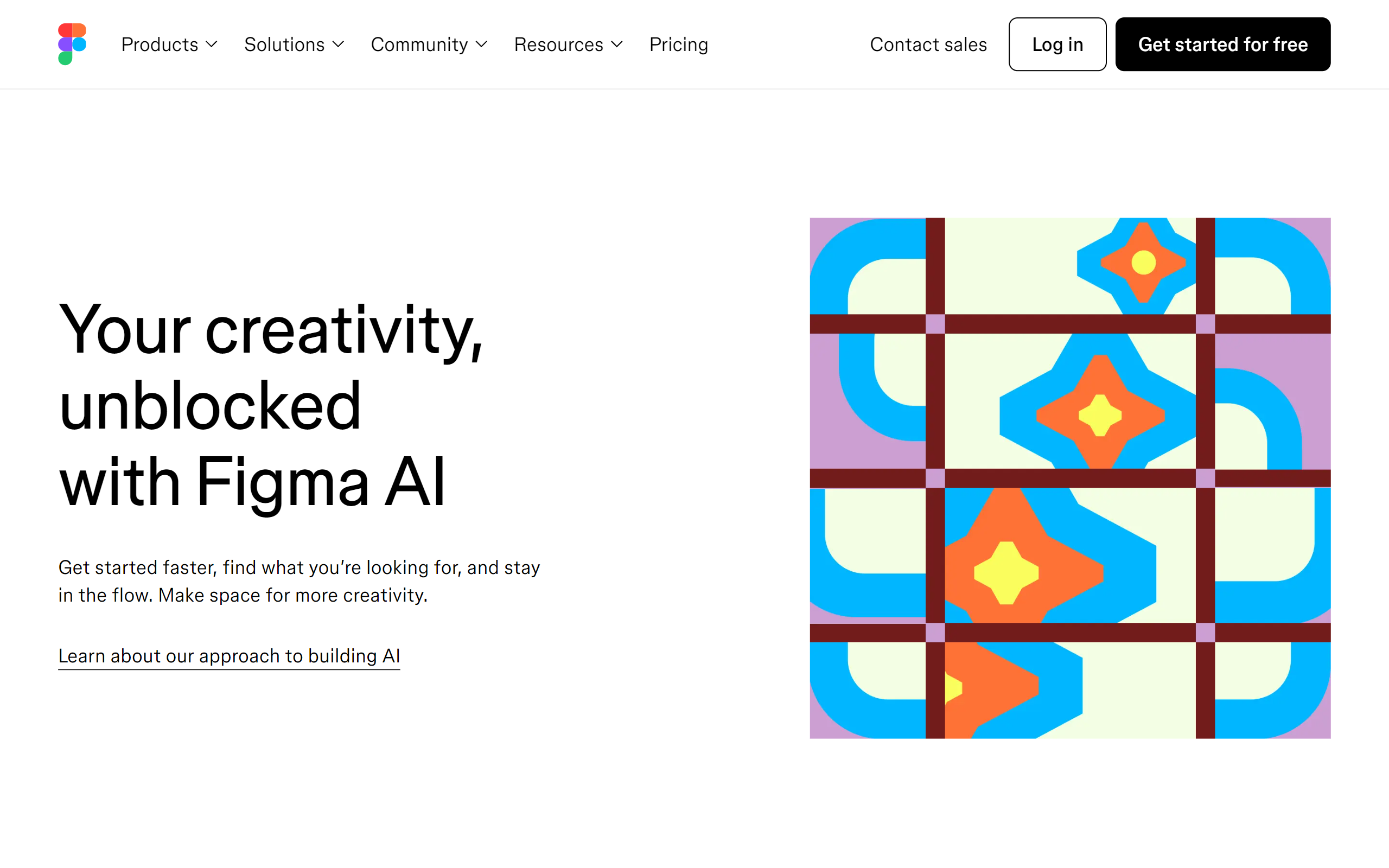
As the industry-standard tool for UI/UX design, Figma is weaving AI into its core platform. Building on features from its acquisition of Diagram, Figma's AI initiatives are focused on automating tedious design tasks, generating design ideas, and turning existing designs into reusable components. This brings the power of AI directly into the collaborative environment where design teams are already working, supercharging their existing workflows.
